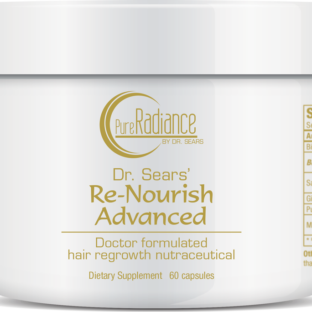If you like to eat chocolate, I have some good news for you. You don’t have to feel guilty.
You already know chocolate lowers blood pressure and increases circulation. But did you know that the cocoa in chocolate protects your brain from stroke?
Chocolate can slash your risk of ever having a stroke, and cut your risk from dying of a stroke nearly in half. Name me a drug that can do that.
One study that followed almost 34,000 women from 1998 to 2008 found that those who ate 50 grams of chocolate a week were up to 27% less likely to have a stroke.1
Another study found that people who ate 50 grams of chocolate once a week were 46% less likely to die following a stroke than those who didn’t eat chocolate.2
You may get a rush of pleasure when you bite into a piece of chocolate. But chocolate gives you more than instant gratification. Chocolate is filled with epicatechins. These special plant nutrients that are in the flavonoid family increase your body’s natural brain-protective enzymes to guard against stroke, and can prevent damage from one.3
About 80% of strokes occur when there isn’t enough blood getting to the brain. Your brain is starved of oxygen and nutrients and begins to die immediately.
Chocolate helps to counteract that in two ways. It’s rich in antioxidants and helps to increase circulation in the brain.
One of the best measures of brain circulation is cerebral vasomotor reactivity. That’s a medical term for how well blood is flowing in your brain. If this is impaired, it’s a sign you may have a stroke. In both men and women, chocolate improves this measure, increases blood flow in the brain, and helps guard against stroke.4
Flavonoids also fight inflammation, which is the real culprit behind heart disease, high blood pressure, and many other chronic diseases.
You can find antioxidant flavonoids in vegetables, tea, coffee and red wine, but cocoa has more brain-protecting catechins. In fact, dark chocolate contains up to four times the antioxidants found in tea.5
When you’re looking for a good source of chocolate, keep these helpful things in mind:
- Look for chocolate that contains 70% or more cocoa. This is the ingredient that contains health benefits.
- Check how much sugar is added to the chocolate you choose. Keep it as low as possible. But choose sugar over artificial sweeteners or chocolate labeled “sugar-free.”
- Beware of other chemicals in the chocolate. Choose a brand that has pure ingredients and no chemical additives.
You can usually find good quality chocolate at a health-food store. More and more it’s finding its way into grocery stores. Read the label to be sure of the quality and content.
My favorite chocolate comes from Bali. The chocolate they make in Bali is like nothing you’ve ever tried. To preserve the catechins, they naturally ferment the cocoa beans under banana leaves. Then they cold press the beans to separate the oil. A good place to get Bali chocolate is bigtreefarms.com. Over 9,000 Balinese farmers partner to contribute the ingredients.
Similarly, you can also get chocolate from dagobachocolate.com. They get cocoa from Tanzania, Africa, which is not far from where I am right now in Uganda. They are supplied by the Biolands Cooperative which has more than 20,000 farmers who have gotten together to contribute organic, fair-trade cocoa.
1. Larsson S, Virtamo J, Wolk A. “Chocolate consumption and risk of stroke in women.” J Am Coll Cardiol. 2011;58(17):1828-9.
2. “Can Chocolate Lower Your Risk of Stroke?” American Academy of Neurology.
3. Shah Z, Li R, Ahmad A, Kensler T, Yamamoto M, Biswal S, Doré S. “The flavanol epicatechin prevents stroke damage through the Nrf2/HO1 pathway.” J Cereb Blood Flow Metab. 2010 Dec;30(12):1951-61.
4. Walters M, Williamson C, Lunn K, Munteanu A. “Chocolate consumption and risk of stroke: A prospective cohort of men and meta-analysis.” Neurology. 2013;80(12):1173-4.
5. I.Arts, P.Hollman, D.Kromhout “Chocolate as a source of tea flavonoids,” The Lancet. 354; (9177): 488-488.








